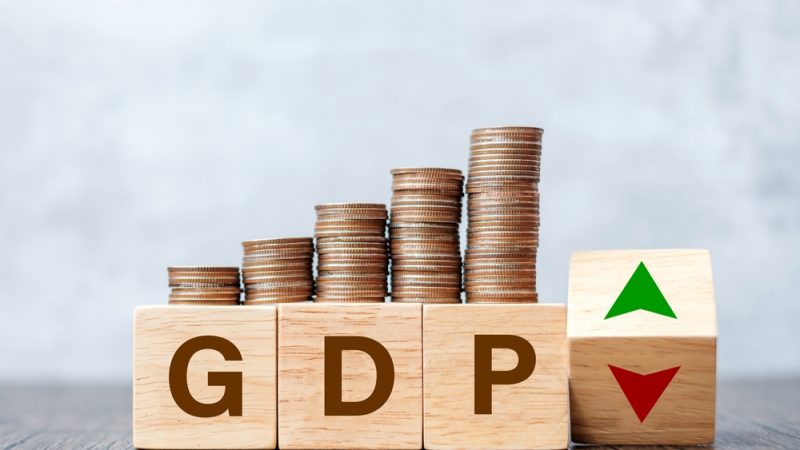
Today, the Office for National Statistics (ONS) published the latest GDP statistics for the final quarter of 2024, showing 0.1% growth in the UK economy.
While some in Government may be sighing a breath of relief after fearing a 0.1% decline, the figures are still sluggish for a government that has bet the house on delivering growth.
This should serve as a wake-up call for Labour: now is the time to redefine what good growth looks like. For years, political leaders have assumed that if GDP ticks upwards, voters will feel the benefits. But public trust in that equation has been shattered. Our findings at the Good Growth Foundation show 46% of Britons worry that growth could widen the gap between rich and poor – rising to 52% of Labour voters.
From the financial crash to Brexit, Covid to the cost of living crisis, people feel they have watched growth happen without them. They see industries like tech and finance boom while their own wages stagnate, public services decline, and work becomes increasingly insecure. Growth, to many, translates to the rich getting richer while everyone else gets left behind.
The Good Growth Foundation calls this disconnect “the growth gap.” It is the difference between how politicians measure economic success and how people experience it. The only way to bridge it is to deliver growth in the areas that actually improve lives. Voters are telling us they want to see a better NHS to create a healthier workforce, improved local transport to increase productivity and more skills and training to expand their job prospects.
Labour must focus on the cost of living crisis
This can be done. Spain has managed to outperform every other European country in terms of growth and decreased unemployment, while increasing the minimum wage, improving workers rights, investing in green energy and subsidising fuel.
Labour has rightly taken much from this approach with the Employment Rights Bill and raising the minimum wage. However, what we need to see now is a laser focus on voters’ main concern: the cost of living crisis.
The cost of living is the dominant lens through which the public views the economy. Our research found nearly two-thirds of Britons see the cost of living as one of the biggest causes of low growth, and lowering it is seen as the most convincing reason to grow.
READ MORE: ‘If we ducked tough choices for growth, Britain’s spiral of decline would continue’
Rachel Reeves has indeed course-corrected in this area, noting in her speech earlier this month that “growth isn’t simply about lines on a graph, it’s about the pounds in people’s pockets”. This is exactly what the public has been telling us. But, in her hour-long speech, Reeves only mentioned the cost of living twice. The reality is, that the crisis really is the be all and end all – hammering voters pockets across the country.
Voters want to know how their living standards and public services will improve soon
To win on the economy, the Government must spell out how big projects, like Heathrow expansion and 1.5 million new homes, will improve living standards across the UK. They have sent the right signals to investors and will pay dividends in the long term. But voters are impatient for change and want to know how their living standards and public services will improve soon.
The Good Growth Foundation’s research shows that people want an active government that backs ordinary people to pursue opportunity. They see this as the route to bringing down the cost of living so they have more money to spend and save, opening up skills and training so they can get a better job and improving healthcare so that they can work and build a better future.
READ MORE: ‘The PM’s tech-led growth plan is vital. But councils can innovate too’
Labour must not fall into the trap of the old trickle-down model, where success at the top was meant to benefit all. It is a project that has failed. Voters are hungry for a new approach – one that prioritises growth in those areas where people can feel it.
This Government has staked its credibility on delivering growth and must now confront the stark reality that GDP alone is important but not enough. Labour can restore faith in the idea that a stronger economy can work for everyone – but it has to open opportunities. This will be key to improving our overall economic prospects and changing voters’ lives for the better.
For more from LabourList, subscribe to our daily newsletter roundup of all things Labour – and follow us on Bluesky, WhatsApp, Threads, X or Facebook .
- SHARE: If you have anything to share that we should be looking into or publishing about this story – or any other topic involving Labour– contact us (strictly anonymously if you wish) at [email protected].
- SUBSCRIBE: Sign up to LabourList’s morning email here for the best briefing on everything Labour, every weekday morning.
- DONATE: If you value our work, please chip in a few pounds a week and become one of our supporters, helping sustain and expand our coverage.
- PARTNER: If you or your organisation might be interested in partnering with us on sponsored events or projects, email [email protected].
- ADVERTISE: If your organisation would like to advertise or run sponsored pieces on LabourList‘s daily newsletter or website, contact our exclusive ad partners Total Politics at [email protected].





More from LabourList
‘Council Tax shouldn’t punish those who have the least or those we owe the most’
Two-thirds of Labour members say government has made too many policy U-turns, poll reveals
‘Two states, one future: five steps on the path to peace for Israelis and Palestinians’